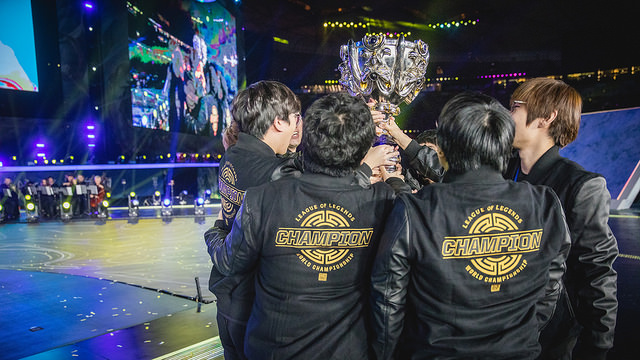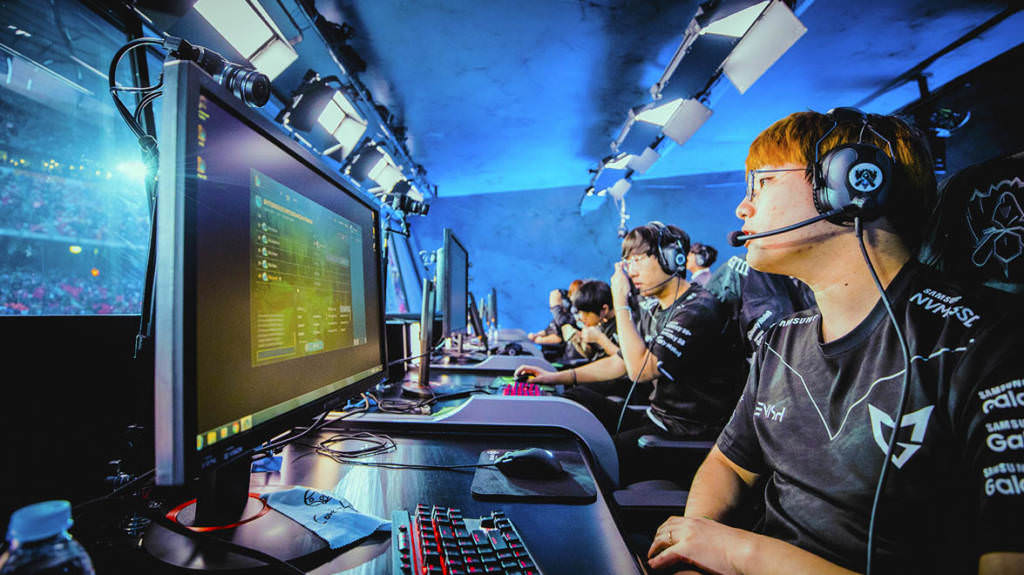Riot Games has shepherded competitive gaming from hotel ballrooms to sold out sports stadiums like the Staples Center and the Bird’s Nest, establishing the League of Legends Championships Series (LCS) as one of the top esports leagues in the world today. Now Riot Games, which is owned by Tencent, is changing things up for 2018 by instituting a more traditional sports franchise model.
Chris Hopper, senior esports manager at Riot Games, told AListDaily that the game company is setting up the North American LCS in a structure that it believes will last for decades.
“This longevity gets us excited about the new opportunities for non-endemic sponsors and brands—introducing a format and structure that enables sponsors and brands to invest in long-term relationships with both the LCS and its teams,” Hopper explained. “We believe that esports is something that will be relevant for generations to come, and these changes will make sure the LCS is a league worth investing in.”
The North American LCS teams brings NBA teams such as the Houston Rockets (whose team is as Clutch City Gaming), the Cleveland Cavaliers (whose team is 100 Thieves) and Golden State Warriors owner Joe Lacob (whose team is the Golden Guardians) into the fold with venerable esports brand OpTic Gaming—which recently received investment from Texas Rangers co-owner Neil Leibman—and existing teams Cloud9, Counter Logic Gaming, Echo Fox, Team SoloMid, Team Liquid and FlyQuest.
Riot received over 100 applications for these team slots, which have a $13 million entry fee, with $8 million due up front. All of the teams will share in revenue from the league.
“By creating a revenue share that involves all teams, we can ensure a bottom line of stability upon which all teams can rely, and ensure an according degree of quality to team operations,” Hopper said. “It also aligns all teams to helping to grow the league and enjoying mutual success instead of needing to compete with each other for every sponsor dollar. Eliminating incentives that create a race-to-the-bottom among team owners is a significant benefit of this system.”
Riot Games has worked with non-endemic brands like Coca-Cola, American Express, T-Mobile, HBO and BMW to connect with its massive fan base. Previous LCS Finals have attracted over 30 million online viewers. Numbers for the 2017 event haven’t been released yet.
“Esports is truly a global operation; the largest leagues are broadcasted in multiple languages and fandom transcends national borders,” Hopper said. “While team and league-level sponsors certainly gain exposure to those markets, we imagine that most will be focused on growing their presence against the North American fan base. That said, there are a few brands that truly benefit from a global audience, and we believe that the top leagues present a great opportunity for brands who want to capitalize on our passionate fans.”

The franchise model also opens the door for more sustainability from a brand and sponsor perspective for each team. Hopper believes that by removing the threat of relegation, teams are now far more able to invest for the long-term, and that extended focus from teams should enable a similar long view from sponsors.
“As teams look to sign players to longer contracts, build content around homegrown stars, and invest in platforms upon which to promote their brand, sponsors should then find new opportunities to work with the teams on compelling brand integrations,” Hopper said. “As these brands look to develop deeper relationships with teams and players, their economic investment should increase, and teams and players will be the primary beneficiaries.”
The other opportunity with LCS in 2018 and beyond is the continued partnership between Riot Games and Disney-owned BAMTech, which also handles streaming for MLB, WWE and HBO. While Hopper said this direction to go this franchise route was one that Riot’s esport leaders have sought to achieve since the first days of the LCS, the $300 million exclusivity deal with BAMTech certainly impacted the timing.
“We’re seeing great traction from our partnership with BAMTech, and we expect to see continued sponsorship growth among both non-endemics and endemics going into the 2018 season,” Hopper said. “Part of our decision-making process was around the economic viability of esports in the region, and the BAMTech deal helped to lay the foundation for the future of league sustainability.”
There will also be a minor league for sponsors to work with Riot around. The Academy League is going to replace the Challenger Series, as each LCS team will be required to field an Academy team instead of independent teams fighting for promotion. The Challenger Series itself was originally conceived by Riot and Coca-Cola.
Riot isn’t the only game company emulating traditional sports. Activision Blizzard launches its Overwatch League early next year, and the NBA also has its own esports league, in partnership with Take-Two Interactive, which debuts in spring. As more traditional sports owners invest in this space, esports will continue to open up new opportunities for companies looking to reach the elusive millennial and Gen Z audiences.

